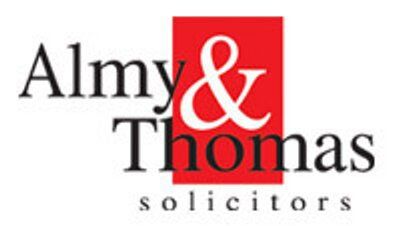Everything You Need To Know About Dispute Resolution

We all lead complex lives where our interactions with others can result in problematic disagreements and legal ramifications. Business relationships, rental agreements, familial interactions and employment issues can all lead to serious disputes that can escalate quickly. In these situations, dispute resolution may be required to settle a conflict.
Dispute resolution, also known as conflict resolution, is a method of resolving disagreements usually outside of a public court. It involves a neutral third party or legal representative who works to resolve a disagreement between two parties. This can be a domestic dispute between two individuals, such as between neighbours, family members, or landlords and tenants. Disputes can also be commercial in nature, where they can arise between an employee and a company, partners in a company or two distinct businesses.
Read on to learn more about dispute resolution methods and processes, as well as the resolution work undertaken by Almy & Thomas.
Alternative Dispute Resolution Methods
Dispute resolution comes in a number of different forms, where each of these methods represents an escalation in formality and severity. Alternative dispute resolution, or ADR, refers to methods of resolving a conflict without resorting to litigation. These approaches may include:
Negotiation
Negotiations represent the first stage of dispute resolution, where this is an informal conversation where the issues between the two parties are identified. This is also known as a pre-action discussion, because at this stage the parties themselves control the process without third party intervention.
Mediation
Mediation is a form of assisted negotiation, where a neutral third party has been enlisted to help move a discussion along. This can be an informal mediator who is known to both parties or a professional who is hired to carry out this role.
Conciliation
Conciliation is an increasingly formal way of resolving a dispute, where a neutral third party or conciliator puts forward a proposed resolution to the dispute, and the two parties work from that point to come to an agreement.
Arbitration
Arbitration represents a further increase in formality levels, where parties submit their cases to an arbitrator who comes to a conclusive decision. This is generally less costly than litigation, where both parties are allowed to set the rules of arbitration, which allows for some flexibility.
Further Resolution Methods
If the above methods have failed, then more formal and costly approaches to conflict resolution can be attempted. These generally involve more legal intervention and can lead to a court appearance:
Litigation
Litigation is when a dispute resolution solicitor is employed to advise and handle the entire process, where this signifies that official legal action has been taken to resolve the dispute. Litigations can go to court, where this method is more costly and time consuming than other more informal approaches.
Private Judging
This is when a private judge hears the case from the legal representatives of both parties and decides on an official conclusion. This judge is court appointed, but the private setting avoids the airing of potentially harmful information in a public courtroom.
Benefits Of Dispute Resolution
Dispute resolution attempts to work out conflicts without resorting to full public court proceedings, where the benefits of these include:
● Parties are likely to save time and money overall
● Reduced stress for both parties due to a more informal approach
● Maintain confidentiality compared to a public court procedure
● Dispute resolution methods are more likely to take individual needs into account
● More personalised conclusions compared to definitive court rulings
● Informal methods help to preserve an amicable relationship between parties
● Effective method of conflict resolution, where the majority of disputes reach an acceptable conclusion
Potential Disadvantages Of Alternative Dispute Resolution
Although there are key benefits to pursuing more informal and flexible resolution methods, there are a number of potential drawbacks, such as:
● Alternative dispute resolution does not guarantee a satisfactory outcome, where parties may have to proceed with litigation and a trial anyway
● Decisions made by third parties such as arbitrators are usually final and cannot be appealed, unlike a court decision
● More difficult to enforce the payment of a financial award to the wronged party, where an injunction can’t be issued
● Parties aren’t required to fully disclose their information as in a litigation, meaning a decision may be reached without a proper examination of all the facts
● If a legal ruling or injunction is required, then full courtroom proceedings need to be followed instead of alternative dispute resolution methods
What Happens If Dispute Resolution Fails?
If alternative dispute resolution as well as legal resolution methods have failed to find a satisfactory conclusion to the conflict then the parties may be forced to go to trial. Both parties will likely wish to avoid this costly and time consuming option.
Alternatives to this can include going back to the mediation stage with a different mediator or third party. Both parties may also consider continuing negotiations without a mediator, where positions may have changed after hearing a neutral third party perspective.
Dispute Resolution Services From Almy & Thomas: From Contract Disputes To Professional Negligence
The legal team at Almy & Thomas is equipped to handle dispute resolutions in a number of different areas, where these include:
Contract Disputes
Contract disputes refer to a disagreement between two parties concerning the specific terms or implementation of a contract, where disputes can arise from the signee or the company that has drawn up the contract. Examples of contract disputes can include disagreements during a contract review or conflicts of opinion over contract terms and definitions. It can also refer to contract errors, forced signings and breaches of contract.
Enforcement
Enforcement is the act of compelling a company or individual to act in accordance with a legal judgement, where this has not been complied with willingly or in a timely manner. This can involve disputes about accepting terms of an agreement or failure to deliver on the terms of a previous conflict resolution.
Landlord & Tenant Disputes
Disputes between landlords and tenants usually involve disagreements surrounding property ownership, financial problems and damage disputes. Potential examples of these kinds of conflicts can include rent payment issues and problems with the return of security deposits. These can be both commercial and residential disputes depending on the kind of rental agreement involved.
Partnership & Company Disputes
A partnership dispute refers to a disagreement between business partners within a company. This could be caused by disagreements about the company’s future, imbalances of power between partners, or partner misconduct. A business dispute refers to a conflict between two separate companies, where disputes may arise from refusal to meet contractual terms of a business agreement.
Building Disputes
This kind of dispute refers to conflicts that emerge out of building and construction agreements. It may be caused by a construction contract not being properly fulfilled, or if a party considers the work carried out to be unacceptable. Disputes can also stem from homeowners failing to deliver on their end of a contract, such as through missed payments or causing a loss of business.
Professional Negligence
Professional negligence describes a situation where a professional business or workforce has failed to deliver their services fully or effectively, which has resulted in harm caused to the customer through financial loss or physical injury. Examples of professional negligence include breaches of confidentiality, providing unsound business advice or overlooking structural damage during a property survey.
Debt Recovery
Debt recovery describes the process of claiming back a loan after it has gone unpaid for an extended period of time. This can be a loan paid from a commercial creditor or a domestic loan. Defended debt recovery describes a disputed debt claim, where a party may object to the terms of repayment or refuse to pay altogether.
Almy & Thomas: Professional Legal Services You Can Depend On
At Almy & Thomas, we offer a wide range of legal assistance throughout Torquay and the wider South West, where our friendly and professional team are on hand to support you throughout the entire process.
In addition to our dispute resolution services, we can also handle cohabitation disputes, conveyancing, personal injury claims and wills. Contact us today for more information about how we can help.







